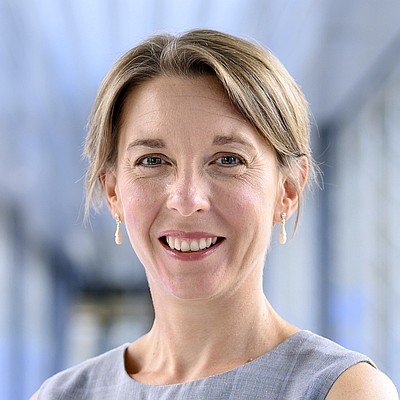This World Press Freedom Day, public service media stand together
29 April 2025On World Press Freedom Day, the European Broadcasting Union highlights the role of public service media in delivering quality news that matters to audiences. Earlier this year, four public broadcasters worked together to organize the cross-border broadcast of an exclusive interview with President Volodymyr Zelenskyy at a pivotal moment.
This Saturday, we will mark World Press Freedom Day, at a time when news integrity and press freedom face intense pressure from misinformation and polarised politics. Public service media are also on the frontlines of this crisis of reliable trustworthy news. A recent collaborative interview with Ukrainian President Volodymyr Zelenskyy, showed what public service media can achieve by standing together to serve all citizens.
On 26 March, the eve of an international meeting in Paris on peace and security for Ukraine, Eurovision News delivered to audiences across Europe an exclusive interview with Zelenskyy via the collective resources and newsrooms of France Télévisions, BBC (UK), ARD (Germany), ERR (Estonia) and Yle (Finland).
Watched by millions on the night and picked up by hundreds of news outlets around the world in dozens of languages, the in-depth interview by five members of the European Broadcasting Union (EBU) brought Zelenskyy’s insights to a global audience.
Bringing it all together – with so many partners, so little time and no margin for error – was no easy task. It took an heroic effort of the broadcasters involved as well as the longstanding video news network of the EBU to deliver this timely interview to audiences.
Crucially, this interview took place at a time when U.S. and European approaches to ending the war were diverging. Zelenskyy sought a wider audience at a pivotal moment. This is where and why a pan-European coalition of outlets mattered – to Zelenskyy, and to people around the world looking for timely and trusted news.
At short notice and across borders, Eurovision News convened members, production teams and senior journalists from the five outlets to do the interview. United in purpose, our energy was channelled into cooperation and the rush of mobilisation.
Even with the resources of Eurovision News, France Télévisions, BBC, ARD, ERR and Yle, this interview was no small production. Notably, France Télévisions provided 100 crew members, three production trucks, and 12 cameras, in support of the four journalists in the room with Zelenskyy and the Finnish reporter joining remotely.
Behind-the-scenes, editors at the Eurovision News desk received the transmission, packaged the interview in multiple languages with the EBU’s EuroVox translation tool and beamed it out to more than 100 member broadcasters.
All of this – from confirmation of the interview to broadcast – took place in 30 hours. But we managed it, delivering an exclusive interview with Zelenskyy by multiple outlets on a very tight timeline. The huge global take-up of the story was a reminder of the gravity of the person and the situation.
But equally important for us was that all EBU members got the interview at the same time. The EBU ensured equal access to vital journalism for audiences across Europe – regardless of language, location or size of broadcaster.
This feat reflects a core value of public service media. Everyone was willing to mobilise and work together in the interests of sharing topical and reliable information with a wide audience for the greater good.
If we want more of these moments, we need to safeguard the conditions that make them possible: editorial independence, legal protections and adequate funding.
Across Europe, press freedom is under pressure. Public service media are being pushed to the margins despite being the most trusted source of news in more than 90 percent of European countries.
This pressure comes from many sides, including government interference, funding cuts, threats to journalist safety, the power of big tech platforms and AI-generated content that’s blurring the line between fact and fiction.
The European Union can do their part. We need robust implementation of the European Media Freedom Act (EMFA) across the bloc to defend against governance and funding threats – along with enforcement of the Digital Services Act (DSA) and Digital Markets Act (DMA) to tackle the challenges from online platforms.
These measures are essential to ensure media can operate freely, without undue interference from governments or big tech, so that trusted journalism can continue to thrive across Europe.
We’re doing our part too. The EBU engages in grassroots activities for press freedom like Difference Day and we’re partners in the Council of Europe’s Safety of Journalists platform.
With 113 members in 56 countries, the EBU has Europe’s largest collective newsroom with 42,000 journalists. Their safety and development are paramount, so our EBU Academy offers training on everything from working in dangerous places, factchecking and storytelling to using AI tools and creating content for underserved audiences.
We also share resources and expertise with our members in public broadcasting and we routinely host events for journalists to build knowledge, connections and community.
Press freedom does not just live in grand gestures but also in the everyday work of journalists showing up, asking questions and refusing to be silenced. The collaborative interview with Zelenskyy was a glimpse of what that commitment looks like and what makes it possible.
This World Press Freedom Day, let the message be clear: when journalists work together across borders for the greater good, the truth travels further.
Rewatch the interview
- Watch the interview in English
- Watch the interview in French
- Transcription of the interview (in English)
Relevant links and documents
Written by








